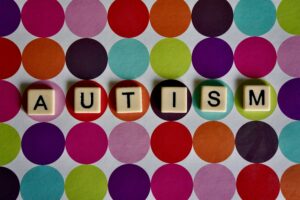Introduction: When “No!” Becomes More Than Just a Phase
In the intricate landscape of child and adolescent mental health, Oppositional Defiant Disorder (ODD) stands out as a particularly challenging condition. While most parents are familiar with occasional defiance from their children, ODD represents a persistent and severe pattern of oppositional behavior that significantly disrupts family, social, and academic functioning. It is not a simple matter of a child being strong-willed or difficult; rather, it is a complex disorder that requires early recognition, intervention, and a structured treatment plan.
Understanding ODD: Beyond the Typical Teenage Attitude
Oppositional Defiant Disorder is a clinically recognized mental health condition defined in the Diagnostic and Statistical Manual of Mental Disorders, Fifth Edition (DSM-5) as a recurrent pattern of angry/irritable mood, argumentative/defiant behavior, or vindictiveness lasting at least six months, exhibited during interactions with at least one individual who is not a sibling.
The DSM-5 criteria categorize ODD symptoms into three domains:
- Angry/Irritable Mood
- Frequently loses temper
- Often touchy or easily annoyed
- Often angry and resentful
- Argumentative/Defiant Behavior
- Often argues with authority figures or adults
- Actively defies or refuses to comply with requests or rules
- Deliberately annoys others
- Blames others for their mistakes or misbehavior
- Vindictiveness
- Has been spiteful or vindictive at least twice in the past six months
The severity of ODD is classified as follows:
- Mild: Symptoms confined to one setting (e.g., home, school, or social settings)
- Moderate: Symptoms present in at least two settings
- Severe: Symptoms present in three or more settings
Clinical Case Study: Jason’s Journey
Consider Jason, an 8-year-old whose interactions with authority figures became increasingly hostile. At school, routine instructions led to aggressive outbursts. At home, simple requests resulted in prolonged power struggles. Jason’s parents and teachers struggled to manage his escalating defiance, highlighting the severity of ODD’s impact. Unlike occasional misbehavior seen in childhood, Jason’s defiance was persistent, unprovoked, and resistant to typical discipline techniques, demonstrating the significant impairment associated with ODD.
Joyspring Health & Recovery. Nurturing Joy. Inspiring Resilience.
Your partner in mental wellness, supporting you every step of the way toward a more fulfilling life.
Etiological Foundations: The Complex Origins of ODD
Multifactorial Causation
ODD develops due to a combination of biological, psychological, and environmental factors. Understanding these factors is critical in tailoring an effective treatment approach.
Biological Determinants
- Genetic predisposition – A higher likelihood of ODD in children with a family history of mood disorders, ADHD, or conduct disorder.
- Neurological impairments – Differences in brain structure and function, particularly in areas regulating impulse control and emotional responses.
- Potential neurotransmitter imbalances – Irregularities in dopamine and serotonin pathways may contribute to irritability and aggression.
Psychological Influences
- Early attachment disruptions – Insecure attachment can lead to difficulties with emotional regulation and trust in authority figures.
- Deficits in emotional regulation – A struggle to manage strong emotions leads to explosive reactions.
- Cognitive rigidity – Children with ODD may struggle with perspective-taking and adapting to rules or social norms.
- Exposure to chronic stress – Prolonged exposure to stressful environments increases behavioral dysregulation.
Environmental Contributions
- Inconsistent or harsh parenting styles – Frequent punishment without clear structure can reinforce defiant behaviors.
- High levels of family conflict – Hostile home environments contribute to oppositional behavior.
- Socioeconomic stressors – Unstable living conditions can exacerbate emotional and behavioral dysregulation.
- Traumatic experiences – Exposure to abuse, neglect, or other forms of trauma can contribute to the development of ODD.
Therapeutic Interventions: A Multimodal Approach
Treatment Strategies
Managing ODD requires a structured, evidence-based approach tailored to the child’s needs. No single treatment works for all children, and a combination of therapeutic strategies is typically most effective.
Psychotherapeutic Approaches
- Cognitive Behavioral Therapy (CBT): Helps children reframe negative thought patterns and develop coping mechanisms.
- Parent-Child Interaction Therapy (PCIT): Strengthens positive parent-child interactions through structured behavioral techniques.
- Social Skills Training: Enhances peer relationships and conflict resolution skills.
- Emotional Regulation Interventions: Focuses on frustration tolerance, impulse control, and emotional self-regulation.
- Family Therapy: Addresses dysfunctional family dynamics that may reinforce oppositional behaviors.
- Behavioral Therapy: Utilizes positive reinforcement strategies to encourage appropriate behaviors while discouraging defiance.
Pharmacological Considerations
Disclaimer: Medication is not a primary treatment for ODD but may be considered when co-occurring conditions complicate symptom management.
- Stimulant medications – Often prescribed when ADHD coexists with ODD to improve impulse control.
- Non-stimulant mood regulators – May assist in managing severe emotional dysregulation.
- Selective serotonin reuptake inhibitors (SSRIs) – Used to address underlying anxiety or depressive symptoms that exacerbate defiance.
- Atypical antipsychotics – Reserved for severe aggression and impulsivity that pose safety concerns.
Prognosis and Long-term Outlook
Early intervention is essential to prevent worsening symptoms. Left untreated, ODD can lead to more severe behavioral disorders, including conduct disorder and antisocial personality traits in adulthood. However, with evidence-based treatment, children with ODD can develop emotional regulation skills, improve social interactions, and achieve long-term success in academic, personal, and professional settings.
Intervention should be proactive, incorporating a combination of therapy, structured behavioral management, and family support systems. The long-term prognosis is significantly improved when caregivers, educators, and clinicians collaborate to create a stable and supportive environment for the child.
Professional Support: Your Collaborative Partner
At Joyspring Health & Recovery, we specialize in evidence-based interventions for ODD, providing comprehensive psychiatric and therapeutic support tailored to the individual needs of each child and their family. Our multidisciplinary approach ensures that children receive the most effective, compassionate care possible.
📞 Professional Consultations Available
🌐 Comprehensive Behavioral Health Services
Remember: Behind every challenging behavior is a child in need of understanding and support. Let’s work together to foster resilience, emotional regulation, and positive development.
This blog post is for educational purposes only and is not a substitute for professional medical advice, diagnosis, or treatment. Please consult Joyspring Health and Recovery for personalized guidance.






Great article.